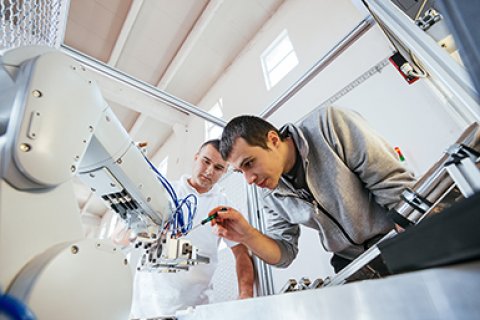HUMAN-AI

Also see: https://human-ai.nl/
There is strong consensus among scientists, industry and governmental bodies that Artificial Intelligence (AI) has a pervasive and profound impact on society. One particular area of AI that will considerably change the way people organise and experience their lives is the advancement of artificial autonomous systems. These “smart” systems can learn to understand, predict, and respond to our internal states (thoughts, feelings, and goals) and, in real-time, recommend or even take actions to foster health and well-being, especially within the emerging technological landscape of the Internet of things (IoT). Accordingly, people are increasingly confronted with a reduced sense of autonomy as a result of being monitored and guided in their actions by complex and autonomous technologies they do not understand or control.
Utrecht University, Eindhoven University of Technology and the University Medical Center Utrecht have initiated the alliance programme “HUMAN autonomy perspective of Artificial Intelligence” (HUMAN-AI) that aims to harness technological advances to enhance rather than threaten human autonomy, while enabling human performance and interaction with physical and social environments. The project is led by professors Henk Aarts (UU) and Panos Markopoulos (TU/e).
The tension between human and machine autonomy poses major scientific, technological and ethical challenges to the design of AI systems, and failing to consider this tension challenges social order and democratic constitutions.
A human perspective on AI
Researchers of the alliance programme want to contribute to empowering people to achieve their aspirations by developing models and methods that can predict and evaluate how people respond to changing interactions with artificial autonomous systems and that can guide the design of AI to be transparent, intelligible, and safeguarding people’s autonomy. The programme makes it possible to combine specialised expertise in engineering and design in technology with high-class expertise in different fields, such as social, educational and computing sciences, healthcare and ethics. The programme includes internationally recognized researchers who are known in their respective fields for their work on human behavior and AI, such as Jan Broersen, Mehdi Dastani, Berry Eggen, Mykola Pecheznkiy, Elise van de Putte, Stefan vd Stigchel, and Wijnand Ijsselsteijn.
By combining existing expertise in technology design, cognitive and social modeling and evaluation of artificial autonomous systems our programme can become an important platform with respect to the future role of AI and the digitalisation of society.
Center for Research, Education and Innovation
A major goal of the alliance programme is to develop an experimental paradigm that addresses the tension between promoting and undermining human autonomy by AI technology. This paradigm provides a shared point of reference and challenge for the different scientific and design perspectives and aims to attract smaller scale and independent international research activities. The programme will also address issues with respect to societal impact by showing how the paradigm can help design artificial autonomous systems in different domains, such as education, healthcare and sustainability. The overarching aspiration is to establish an excellence center for advanced expertise in research, training, application and innovation of HUMAN-AI.
Strategic themes, focus areas and research areas
The participating researchers are embedded in interdisciplinary programmes, such as the Utrecht strategic themes ‘Institutions for Open Societies’ and ‘Dynamics of Youth’, the Utrecht focus area 'Human-centered Artificial Intelligence', and the Eindhoven research areas ‘Artificial Intelligence’ and ‘Humans and Technology’.

